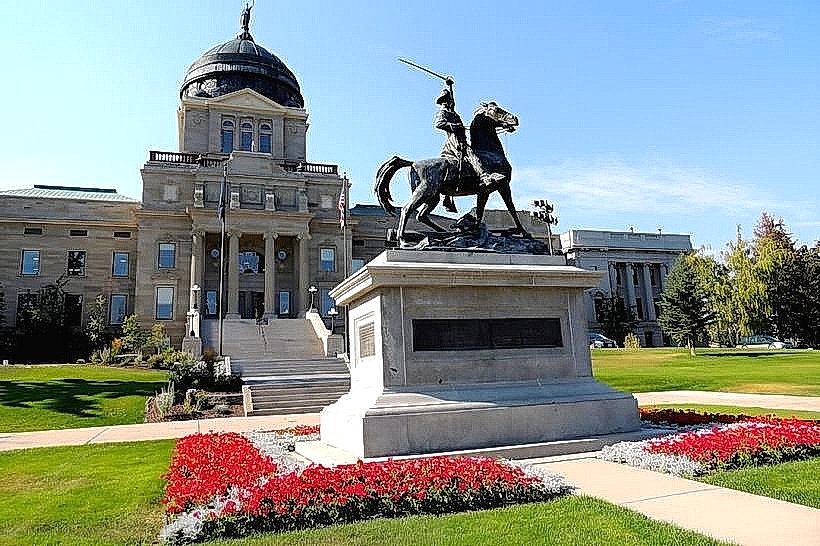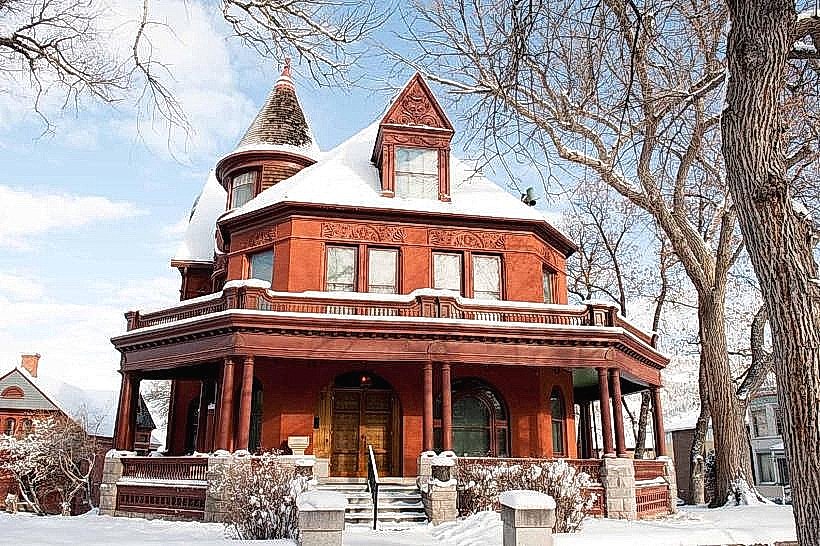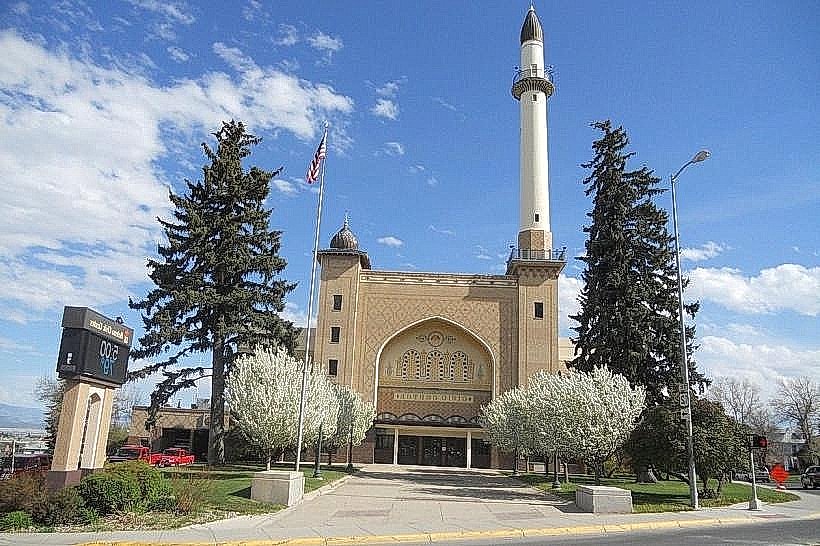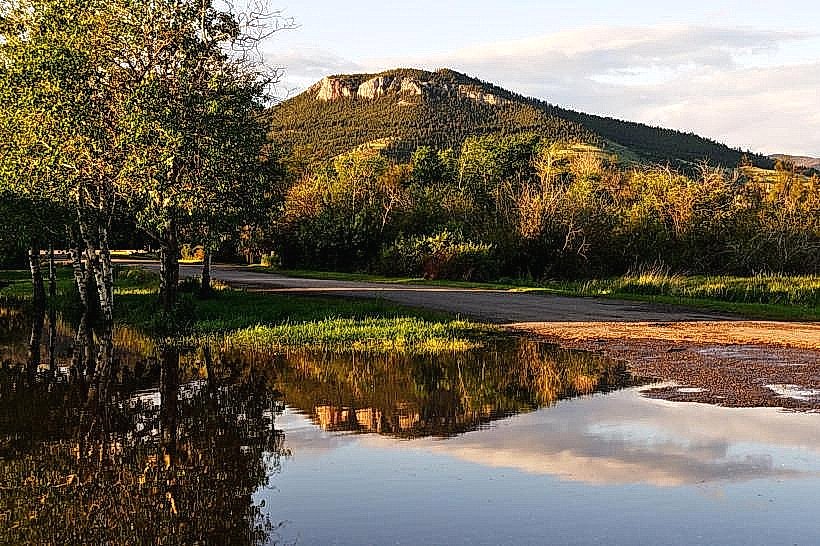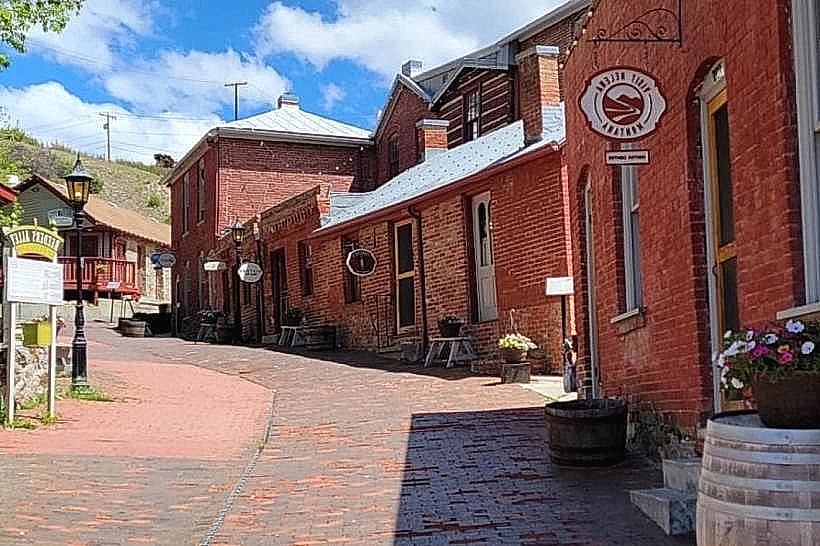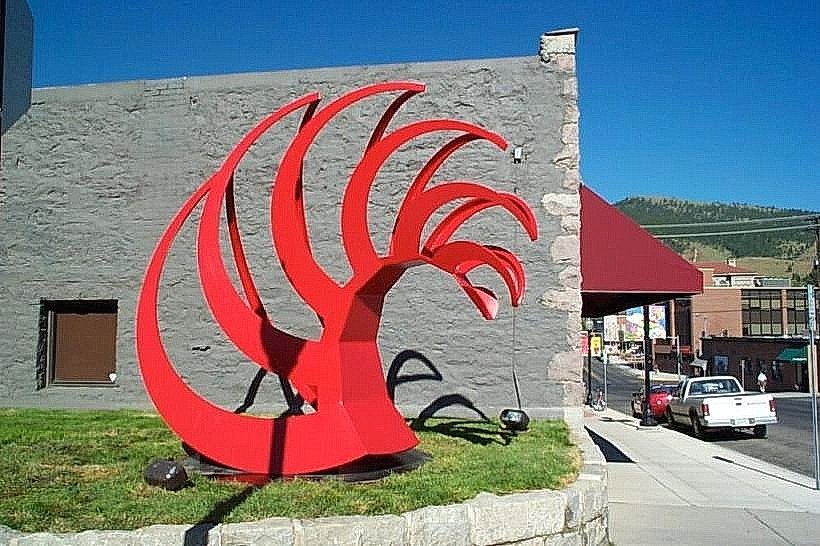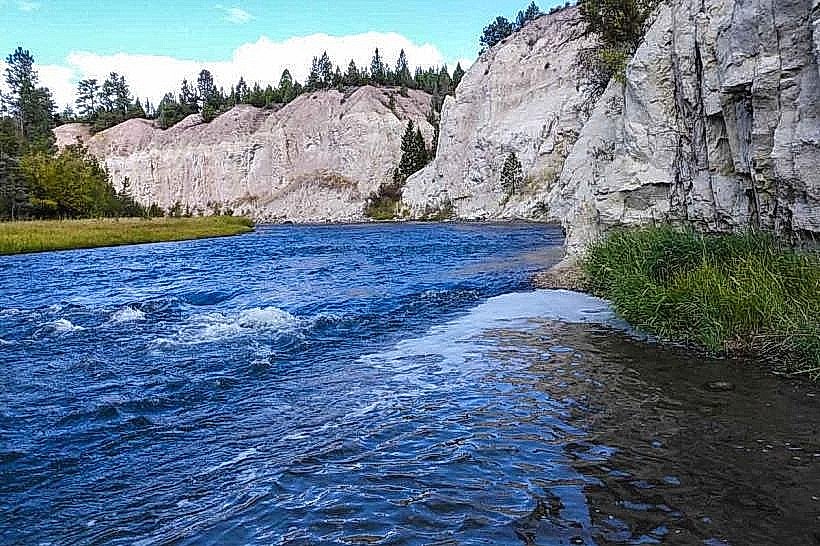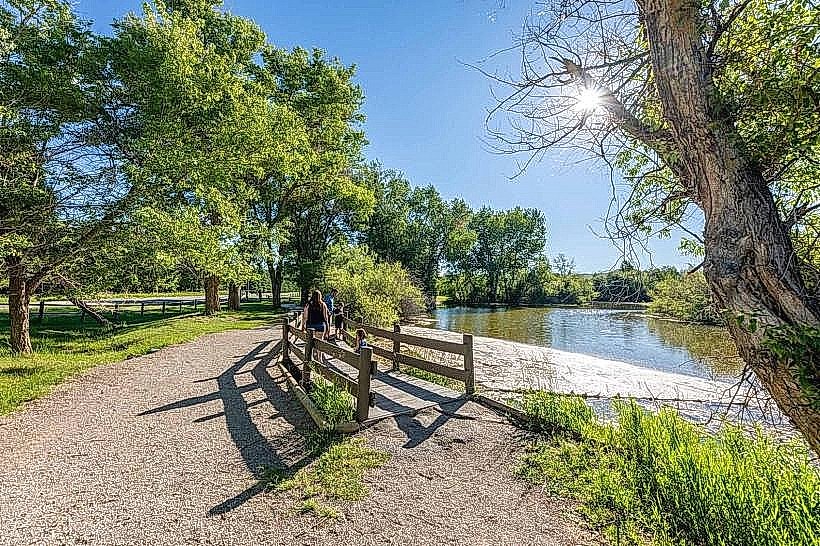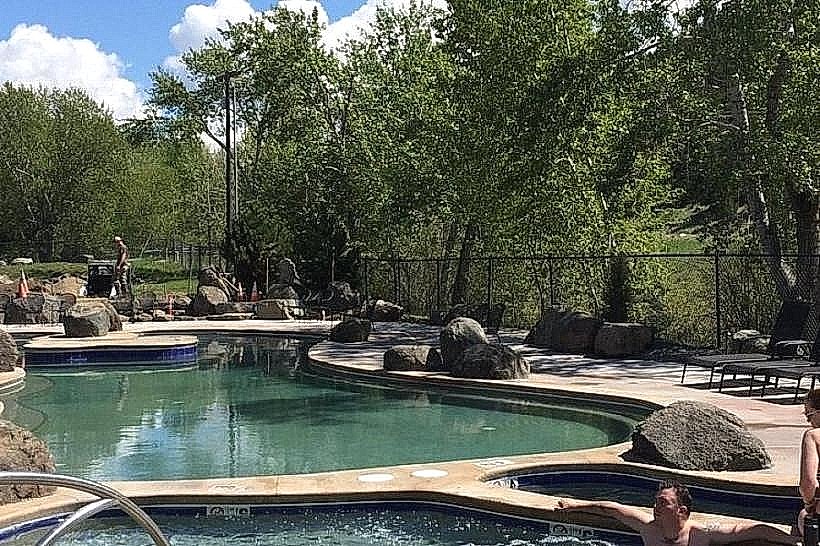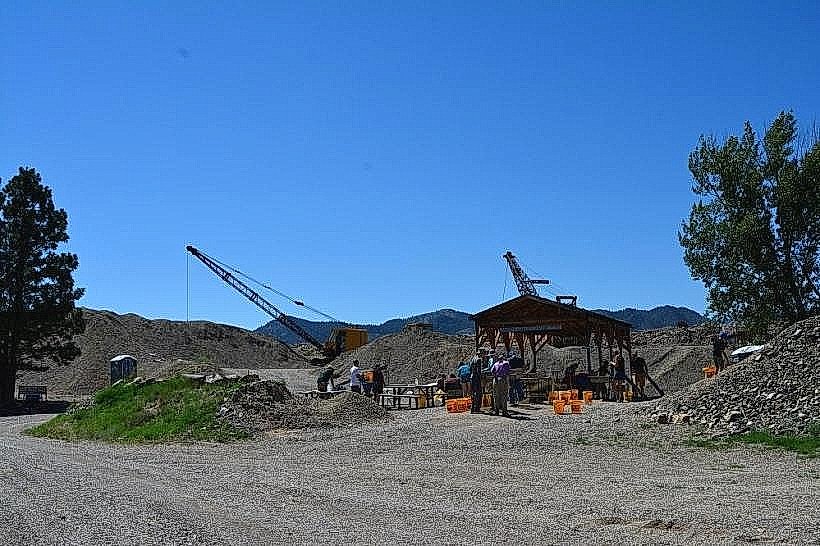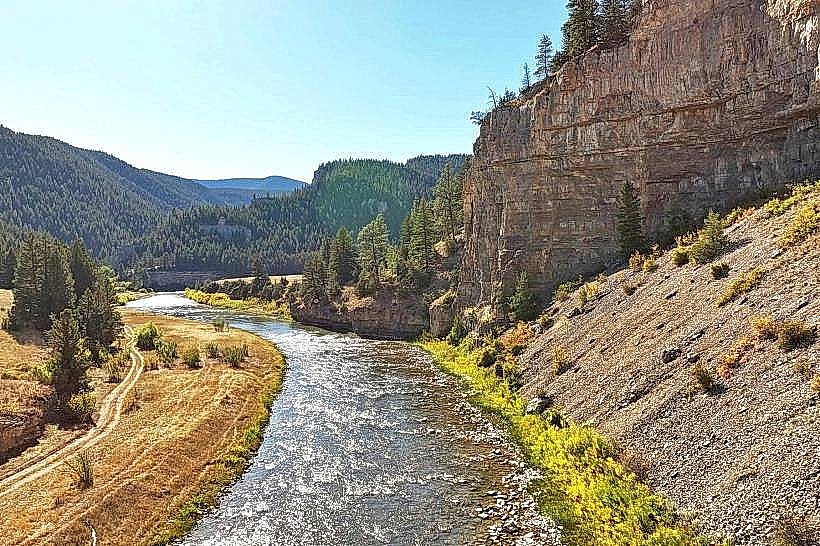Information
Landmark: Gates of the MountainsCity: Helena
Country: USA Montana
Continent: North America
Gates of the Mountains, Helena, USA Montana, North America
The Gates of the Mountains is a geological formation located in the Helena National Forest, north of Helena, Montana, USA.
This site features a narrow canyon carved by the Missouri River.
Visual Characteristics
The canyon walls are composed of Precambrian limestone, exhibiting a gray to tan coloration. These sheer cliffs rise approximately 1,000 feet (305 meters) above the river's surface. The Missouri River flows through the canyon, its water color varying from a silty brown to a clearer blue depending on recent precipitation and sediment load. Vegetation is sparse on the exposed rock faces, with hardy shrubs and small trees clinging to crevices.
Location & Access Logistics
The Gates of the Mountains is accessible via Interstate 15 North from Helena. Take Exit 211 for Montana Highway 44 (also known as York Road). Continue on Montana Highway 44 for approximately 10 miles. The primary access point is the Gates of the Mountains Boat Tour dock, located at 1000 Gates of the Mountains Rd, Helena, MT 59602. Parking is available at the boat tour facility. Public transport is not available to this location.
Historical & Ecological Origin
This geological feature was formed by the erosive power of the Missouri River over millions of years, cutting through the ancient limestone bedrock. The area was named by Captain Meriwether Lewis and William Clark during their 1805 expedition. They described passing through the canyon on July 19, 1805, noting the imposing rock formations that appeared to form a gateway.
Key Highlights & Activities
The primary activity is a narrated boat tour on the Missouri River through the canyon. The tour lasts approximately 2 hours and covers 19 miles round trip. Visitors can observe the canyon walls, wildlife, and historical markers. Hiking trails are available in the surrounding forest, but direct access to the canyon floor from the boat tour is limited.
Infrastructure & Amenities
Restrooms are available at the Gates of the Mountains Boat Tour facility. Shade is provided on the tour boats. Cell phone signal is intermittent within the canyon itself, with better reception closer to the boat dock. Food vendors are typically present at the boat tour facility, offering snacks and light meals.
Best Time to Visit
The boat tours operate from late May through September. The best time of day for photography is generally mid-morning or late afternoon when the sun angle creates more defined shadows on the canyon walls. Weather is most favorable for boat tours during the summer months (June, July, August), with lower chances of rain and moderate temperatures.
Facts & Legends
During the Lewis and Clark Expedition, the men were concerned about navigating the narrow passage, fearing potential ambushes. Captain Lewis noted in his journal that the river appeared to be "shut up" by the mountains, hence the name "Gates of the Mountains."
Nearby Landmarks
- Helena National Forest (Adjacent, various points)
- Montana State Capitol Building (15km South)
- Exploration Gateway Visitor Center (12km South)
- Spring Meadow Lake State Park (18km South)


